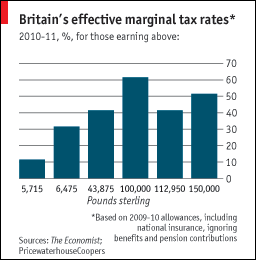Drop in annual pay ahead for civil servants
By Loh Chee Kong and Cheow Xin Yi,
TODAY Posted: 20 March 2009 0710 hrs
SINGAPORE: With the dismal economy showing few signs of recovery, civil servants can expect their pay package to shrink in the year ahead.
TODAY has learnt that civil servants — who are awaiting news on their annual performance bonuses and pay increments as the financial year draws to a close — received a circular via email from the Public Service Division (PSD) in the Prime Minister’s Office, priming them to “expect to see a drop in annual salaries” this year.
Senior officers will see a larger percentage cut. But deserving civil servants will continue to be rewarded with performance bonuses and increments — albeit at lower levels than last year.
Dated March 16, the circular, a copy of which was obtained by TODAY, was signed off by PSD director (leadership development) Ong Toon Hui.
Contacted by TODAY, various civil servants in several ministries, including rank-and-file staff and those in junior management positions, confirmed receipt of the circular.
The news should perhaps come as little surprise, given that civil service pay is in part linked to economic performance, with components such as the GDP bonus — which will be zero this year, noted the circular.
But even so, one civil servant who works in education was “surprised”, given how the public sector has been ramping up hiring — by 18,000 over these next two years, to be precise.
She was comforted by the fact that deserving employees would be rewarded. “If they deduct our performance bonus, everyone is going to be very demoralised,” she said.
While the Amalgamated Union of Public Employees could not be reached for comment, Mr G Muthukumarasamy, the general-secretary of the Amalgamated Union of Public Daily-Rated Workers, was optimistic tweaks to civil service monthly wages would not affect those in the lower income group, as their pay was “already so low”.
Still, civil servants TODAY spoke to understood the rationale for the smaller pay packages.
The floundering global economy has spawned retrenchments and pay cuts in the private sector, and while civil servants typically do not have to fear lay-offs, it would “not be logical” for them to be similarly shielded from pay cuts, a 24-year-old civil servant said. “If you manage to stay employed, you are luckier than a lot of people out there who are retrenched.”
In fact, Singapore National Employers Federation vice-president Bob Tan said he feels any salary adjustments would correct a current “misalignment” with the private sector.
“The public sector works on a slightly different basis, you don’t see them going out of business... (but) you can’t have a situation when the public sector is earning so much more than the private sector.”
In the circular to civil servants, Ms Ong said in such difficult times, “all Singaporeans must stand together”.
“We look forward to your active contribution to helping Singapore and Singaporeans overcome the current challenges and return as quickly as possible to better times,” she wrote.
Soon after the downturn’s onset, the Government had announced in November changes affecting civil servants’ annual pay package for last year. They did not receive the special Growth Bonus and saw their Annual Variable Component (AVC) — which is also linked to economic performance — halved.
Under the pay formula, a substantial part of the annual pay of Senior Permanent Secretaries and Ministers is linked to the GDP growth rate.
Noting that the official GDP forecast of minus five to minus two per cent for this year “will most likely be revised further”, Ms Ong said there would be “zero GDP bonuses” this year, with the AVC to be cut further.
With the National Wage Council set to meet next month or May for its annual deliberations, Ms Ong said the civil service would follow its guidelines “in deciding the exact adjustments to salaries”.
She added: “It is safe to say that if economic conditions continue to deteriorate, further adjustments in salaries will likely become necessary.”
Companies to follow suit… or exploit?
As Singapore’s largest single employer with more than 60,000 staff, the civil service’s announcements on salary adjustments are closely watched by the private sector.
Companies that have resisted cutting pay so far might “take direction” from the public service, said Mr Josh Goh, a senior manager at recruitment agency The GMP Group. But he cautioned against firms — especially those that have already implemented pay cuts — from exploiting the situation.
“If the company, after the first round of cuts, can manage the cost well, there’s no necessity for them to go for a second round,” he said.
On the cards
- A drop in annual salaries, with senior officers seeing a larger percentage drop
- Civil servants on salary ranges will get merit increments, though lower
- Zero GDP bonus, reduced AVC
- Performance bonus will be paid based on individual performance to encourage officers to excel
-
TODAY/yb


